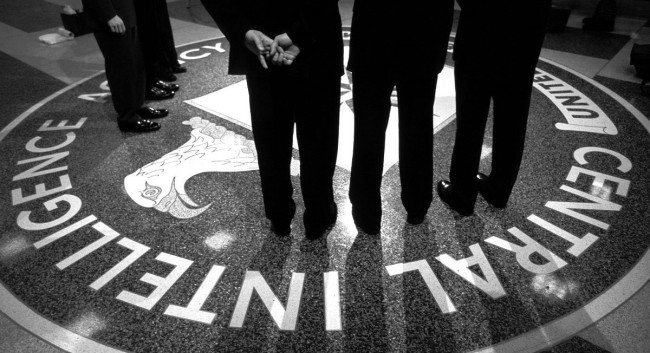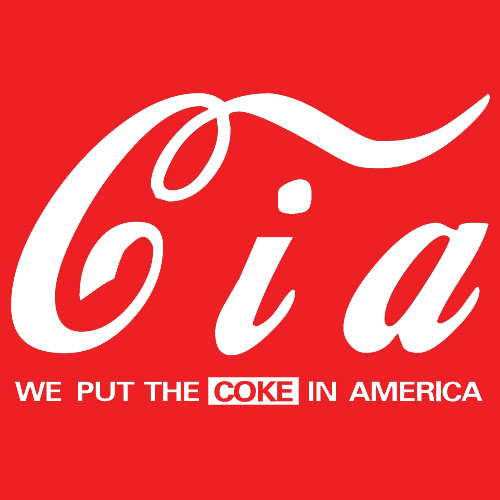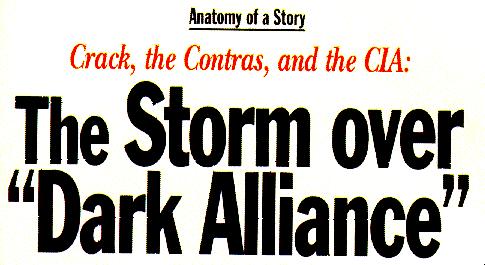LOS ANGELES — With the public in the U.S. and Latin America becoming increasingly skeptical of the war on drugs, key figures in a scandal that once rocked the Central Intelligence Agency are coming forward to tell their stories in a new documentary and in a series of interviews with The Huffington Post.
More than 18 years have passed since Pulitzer Prize-winning journalist Gary Webb stunned the world with his “Dark Alliance” newspaper series investigating the connections between the CIA, a crack cocaine explosion in the predominantly African-American neighborhoods of South Los Angeles, and the Nicaraguan Contra fighters — scandalous implications that outraged LA’s black community, severely damaged the intelligence agency’s reputation and launched a number of federal investigations.
It did not end well for Webb, however. Major media, led by The New York Times, Washington Post and Los Angeles Times, worked to discredit his story. Under intense pressure, Webb’s top editor abandoned him. Webb was drummed out of journalism. One LA Times reporter recently apologized for his leading role in the assault on Webb, but it came too late. Webb died in 2004 from an apparent suicide. Obituaries referred to his investigation as “discredited.”
Now, Webb’s bombshell expose is being explored anew in a documentary, “Freeway: Crack in the System,” directed by Marc Levin, which tells the story of “Freeway” Rick Ross, who created a crack empire in LA during the 1980s and is a key figure in Webb’s “Dark Alliance” narrative. The documentary is being released after the major motion picture “Kill The Messenger,” which features Jeremy Renner in the role of Webb and hits theaters on Friday.
Webb’s investigation was published in the summer of 1996 in the San Jose Mercury News. In it, he reported that a drug ring that sold millions of dollars worth of cocaine in Los Angeles was funneling its profits to the CIA’s army in Nicaragua, known as the Contras.
Webb’s original anonymous source for his series was Coral Baca, a confidante of Nicaraguan dealer Rafael Cornejo. Baca, Ross and members of his “Freeway boys” crew; cocaine importer and distributor Danilo Blandon; and LA Sheriff’s Deputy Robert Juarez all were interviewed for Levin’s film.
The dual release of the feature film and the documentary, along with the willingness of long-hesitant sources to come forward, suggests that Webb may have the last word after all.
Source: See More Here – The Huffington Post













































































































































































































































![[Video] Chicago Police Officers Caught On Video Telling Two Black Men "We Kill Mother F**kers"](https://earhustle411.com/wp-content/uploads/2018/07/evil-cop-3-300x180.jpg)
![[Video] Chicago Police Officers Caught On Video Telling Two Black Men "We Kill Mother F**kers"](https://earhustle411.com/wp-content/uploads/2018/07/evil-cop-3-80x80.jpg)












![[Video] White Woman Calls The Cops On Black Real Estate Investor, Cops Threaten To Arrest Her For Harassing Him](https://earhustle411.com/wp-content/uploads/2018/05/nosy-neighbor-300x180.png)
![[Video] White Woman Calls The Cops On Black Real Estate Investor, Cops Threaten To Arrest Her For Harassing Him](https://earhustle411.com/wp-content/uploads/2018/05/nosy-neighbor-80x80.png)


![White Scientist Says The Black Community Is Being Targeted By The Medical System, They Are Deliberatly Being Poisoned [Video]](https://earhustle411.com/wp-content/uploads/2016/05/mike-adams-300x180.jpg)
![White Scientist Says The Black Community Is Being Targeted By The Medical System, They Are Deliberatly Being Poisoned [Video]](https://earhustle411.com/wp-content/uploads/2016/05/mike-adams-80x80.jpg)








![Teenage Girl Shot In Her Stomach Three Times But Took Time To Post To Facebook [ Video]](https://earhustle411.com/wp-content/uploads/2016/02/Gangster-chick-300x180.jpg)
![Teenage Girl Shot In Her Stomach Three Times But Took Time To Post To Facebook [ Video]](https://earhustle411.com/wp-content/uploads/2016/02/Gangster-chick-80x80.jpg)







